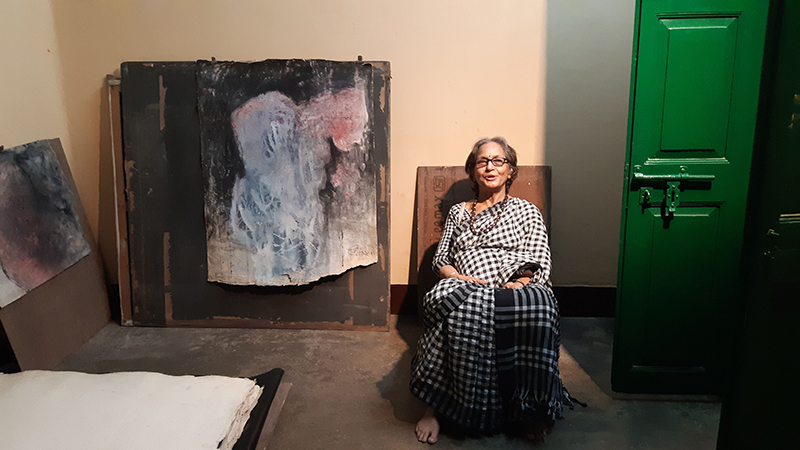Rosalyn Dmello




Grant Period: One year and six months
Rosalyn Dmello is an author, columnist, editor, researcher, and a widely-published freelance art writer and critic. She is author of A Handbook for my Lover (HarperCollins India, 2015; Hardie Grant Australia, 2016) and her writing has appeared in numerous anthologies published in India and other countries. Since January 2016, she has been writing a weekly feminist column for mid-day, and, since mid-2016, a regular column for OPEN based on her visits to South Asian artists' studios, which she has been evolving into a forthcoming book for Oxford University Press, India. She was previously the editor of BLOUINARTINFO India and was nominated for the Forbes' Best Emerging Art Writer Award in 2014, and shortlisted for the Prudential Eye Art Award for Best Writing on Asian Contemporary Art in 2014. She was associate editor of The Art Critic, a selection of the art writings of Richard Bartholomew from the 1950s to the early 1980s, and a member of the jury of the Prudential Eye Art Award 2015.
This grant will enable Rosalyn to investigate what life in a visual artist’s studio entails. She will explore the ways in which artists approach their work within the studio spaces, experience leisure and source materials. She will inquire into the significant roles played by their assistants who are never acknowledged for their contribution to an artist’s work and life. Through this project, Rosalyn intends to address the possibility of generating an alternative art history through a reinterpretation of scholia, citations, and footnotes embedded within bibliographic sources as well as casual yet crucial anecdotes sourced from within the schematic and parameters of artists’ studios. Her aim is to write into the lacunae identifiable in existing histories of modern Indian art and contemporary artists’ studio practices in order to bring together elements that have been dismissed as passing mentions, or edited-out excerpts from interviews, or epistolary correspondence likely to remain unpublished.
Some of the questions that Rosalyn will aim to find answers for are as follows: Can the art historian position herself as a witness and interlocutor dialoguing with artists on equal footing as a fellow creator sans the instituted biases and over-reverence? What shape could such an alternative re-telling assume when the person chronicling it functions self-consciously in the memoirist mode? Can the feminist art historian recalibrate art history established from a male artist-oriented bias or through the conditioned prejudice towards male superiority?
Rosalyn seeks to break new conceptual ground in how one can constitute a more inventive and imaginative form of art criticism and historiography that is hinged on the intersections between history and memory, archive and experience, and studio and practice. Her emphasis on artistic practices is intended to disrupt the notion of institutionalised canon. Rosalyn argues that artists whose practice is predominantly embedded and encoded within the site of the studio, such a restricted domain of intellectual, emotional, and physical labour must naturally serve as a hive of memories. She will examine the ways in which artists relate to their own as well as other artists’ histories and practices.
During the course of her fieldwork, Rosalyn will conduct a series of interviews with artists alongside reading significant publications and essays on modern and contemporary Indian art and artists. The aim will be to locate and identify the citations, scholia, and footnotes and reference and reinterpret them through the plurality of accounts sourced. She will also have in-depth conversations with gallerists, curators, assistants at galleries and collectors as a way of sourcing their memories to supplement her research.
Through this project, Rosalyn intends to challenge the privileged authority of singular voices and incorporate feminist intersectional methodology for greater inclusivity. The outcome of this project will be a manuscript for a book. The Grantee’s deliverables to IFA with the final reports will be the manuscript for the book and extensive audiovisual documentation of the interviews with visual artists from across India.
This grant is made possible with support from Parijat Foundation.
